
Biographies of the Speakers
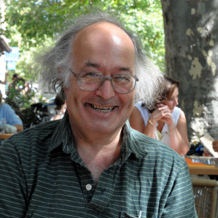 Peter
Biller is
Professor of Medieval History
at the University of York, where he has taught since 1970. He works
partly on thought in academic texts - arts, legal, medical and
theological texts. He drew material from these for The
Measure of Multitude: Population in Medieval Thought (2000)
and most recently in his chapter on Proto-racial thought in
Medieval Science, in The
Origins of
Racism in the West
(2010). Otherwise he
works on heresy and the inquisition, producing The
Waldensians, 1170-1530
(2001), and
editing in collaboration Heresy
and
Literacy, 1000-1530
(1994), Texts
and the Repression of Medieval Heresy
(2003) and Inquisitors
and Heretics in
Languedoc: Edition and Translation of Toulouse Inquisition
Depositions, 1273-1282
(2011).
Currently he is preparing a monograph comparing two inquisitors.
Peter
Biller is
Professor of Medieval History
at the University of York, where he has taught since 1970. He works
partly on thought in academic texts - arts, legal, medical and
theological texts. He drew material from these for The
Measure of Multitude: Population in Medieval Thought (2000)
and most recently in his chapter on Proto-racial thought in
Medieval Science, in The
Origins of
Racism in the West
(2010). Otherwise he
works on heresy and the inquisition, producing The
Waldensians, 1170-1530
(2001), and
editing in collaboration Heresy
and
Literacy, 1000-1530
(1994), Texts
and the Repression of Medieval Heresy
(2003) and Inquisitors
and Heretics in
Languedoc: Edition and Translation of Toulouse Inquisition
Depositions, 1273-1282
(2011).
Currently he is preparing a monograph comparing two inquisitors.
Michael Borgolte , born in 1948, studied History, German Philology, and Philosophy at the University of Münster, and completed his Habilitationschrift at the University of Freiburg in Breisgau. Since 1991 he has been a Full Professor of Medieval History at Humboldt University in Berlin; where he founded the Institute for the Comparative History of Europe in the Middle Ages in 1998. He is a full Member of the Berlin-Brandenburg Academy of Sciences and Humanities (2005) and was a Fellow of the Max-Weber-Kolleg in Erfurt 2008/2009. His interests include both European and Global history during the Middle Ages, and the history and theory of Historiography. His most recent books are Europa entdeckt seine Vielfalt 1050-1250 (2002) [Europe. The Discovery of Diversity, 1050-1250]; and Christen, Juden, Muselmanen. Die Erben der Antike und der Aufstieg des Abendlandes 300-1400 n. Chr. (2006) [Christians, Jews and Muslims. The Heirs of Antiquity and the Ascent of Western Europe, 300-1400].
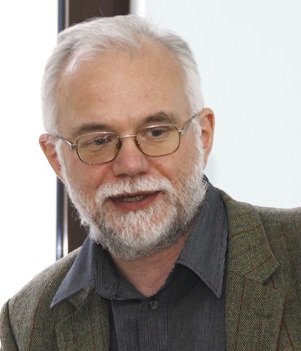 Michail
A. Boytsov has from September
2011 been full professor of Medieval History at the National
Research University Higher School of Economics in Moscow.
He was formerly associate professor of Medieval History at the Lomonosov State
University in Moscow, where he has taught since 1991.
He is
editor in chief of the historical almanac Casus :
the
individual and unique in history
(published in Russian since 1997) and member of the editorial council
of the Zeitschrift
für historische
Forschung
(Germany). His principal
field of research is that of political rituals, mainly in the German
lands during the fourteenth and fifteenth centuries. His most
important work, Majesty
and Humility.
Studies in Medieval European Political Symbolism
(published in Russian in 2009) will shortly be appearing in an
English version, published by Brill.
Michail
A. Boytsov has from September
2011 been full professor of Medieval History at the National
Research University Higher School of Economics in Moscow.
He was formerly associate professor of Medieval History at the Lomonosov State
University in Moscow, where he has taught since 1991.
He is
editor in chief of the historical almanac Casus :
the
individual and unique in history
(published in Russian since 1997) and member of the editorial council
of the Zeitschrift
für historische
Forschung
(Germany). His principal
field of research is that of political rituals, mainly in the German
lands during the fourteenth and fifteenth centuries. His most
important work, Majesty
and Humility.
Studies in Medieval European Political Symbolism
(published in Russian in 2009) will shortly be appearing in an
English version, published by Brill.
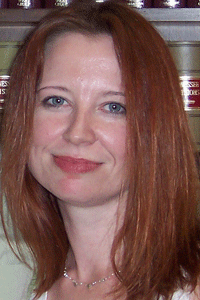 Christine
Caldwell Ames
is Associate Professor of History at the University of South Carolina,
where she has taught since 2005. She was awarded her Ph.D by the
University of Notre Dame in 2002. Her special interests are the history
of Christianity, heresy and inquisition, interreligious relations, and
the taxonomy of religion. She is the author of Righteous Persecution.
Inquisition, Dominicans and Christianity in the Middle Ages (2008). She
is presently preparing two book projects: Medieval Heresies:
Christianity, Judaism, and Islam for the Cambridge Medieval Textbook
series, and Blood of the Vine: A Religious History of Wine in the
Middle Ages.
Christine
Caldwell Ames
is Associate Professor of History at the University of South Carolina,
where she has taught since 2005. She was awarded her Ph.D by the
University of Notre Dame in 2002. Her special interests are the history
of Christianity, heresy and inquisition, interreligious relations, and
the taxonomy of religion. She is the author of Righteous Persecution.
Inquisition, Dominicans and Christianity in the Middle Ages (2008). She
is presently preparing two book projects: Medieval Heresies:
Christianity, Judaism, and Islam for the Cambridge Medieval Textbook
series, and Blood of the Vine: A Religious History of Wine in the
Middle Ages.
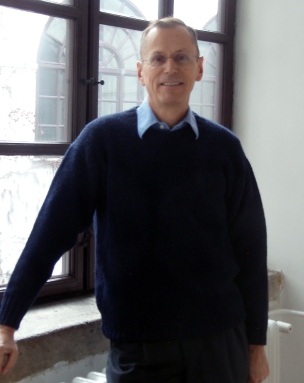 Patrick
Geary is Professor of Medieval History at the Institute for Advanced Study in Princeton. His principal field of research is Continental
history of the early Middle Ages (500-1100) with an emphasis on
social history, the history of memory, and conflict resolution. Among
his books are Furta
Sacra: Thefts of
Relics in the Central Middle Ages
(1991); Phantoms
of Remembrance: Memory
and Oblivion at the end of the first Millennium
(1996); The Myth
of Nations: The
Medieval Origins of Europe (2002); and Women at the Beginning: Origin
Myths from the Amazons to the Virgin Mary
(2006).
Patrick
Geary is Professor of Medieval History at the Institute for Advanced Study in Princeton. His principal field of research is Continental
history of the early Middle Ages (500-1100) with an emphasis on
social history, the history of memory, and conflict resolution. Among
his books are Furta
Sacra: Thefts of
Relics in the Central Middle Ages
(1991); Phantoms
of Remembrance: Memory
and Oblivion at the end of the first Millennium
(1996); The Myth
of Nations: The
Medieval Origins of Europe (2002); and Women at the Beginning: Origin
Myths from the Amazons to the Virgin Mary
(2006).
Richard Hitchcock taught at the University of Exeter from 1966 until his retirement as Professor of Hispano-Arabic Studies in 2003. He has written extensively on Arabic Spain, as well as about Spanish literature, both medieval and of the Golden Age, including Cervantes; and also on the origins of Hispanic studies in the Anglophone world and about British travellers in Spain during the eighteenth and nineteenth centuries. Among his recent publications is Mozarabs in Early Medieval Spain (2008).
 Joep
Leersen
studied at the University of Aachen and University
College, Dublin, before being awarded his doctorate from the University
of Utrecht in 1986. He has been Professor of Modern European Literature
at the University of Amsterdam since 1991, and from 1996 until 2006 was
Director of the Huizinga Institute (the Dutch National Research
Institute and graduate school of Cultural History). He was a visiting
professor at Harvard in 2003. His interests include Irish history and
literature, and the role of literature in cultural nationalism,
especially that of medieval literature in nationalism and
nation-building in the nineteenth century. His books include National Thought in Europe: a
Cultural History (2006), and he was awarded the
prestigious Spinoza Prize in 2008.
Joep
Leersen
studied at the University of Aachen and University
College, Dublin, before being awarded his doctorate from the University
of Utrecht in 1986. He has been Professor of Modern European Literature
at the University of Amsterdam since 1991, and from 1996 until 2006 was
Director of the Huizinga Institute (the Dutch National Research
Institute and graduate school of Cultural History). He was a visiting
professor at Harvard in 2003. His interests include Irish history and
literature, and the role of literature in cultural nationalism,
especially that of medieval literature in nationalism and
nation-building in the nineteenth century. His books include National Thought in Europe: a
Cultural History (2006), and he was awarded the
prestigious Spinoza Prize in 2008.
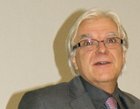 Christian
Lübke , born
in 1953, has since 2007 been Professor of the History of Eastern
Europe and Director of the Centre for the History and Culture of
Eastern Europe at the University of Leipzig. He received his
doctorate from the University of Gießen in 1980, and after
teaching there and at the Free University of Berlin, he was Professor
at the University of Griefswald 1998-2007. His
books include Novgorod
in der russichen
Literatur (1984)
and Fremde
in östlichen Europa. Von Gesellschaften ohne Staat zu
verstaatlichen Gesellschaft (9-11. Jahrhundert)
(2001)
[Outsiders in Eastern Europe:
from Societies without States to the State Society, during the ninth
to eleventh Centuries.
Christian
Lübke , born
in 1953, has since 2007 been Professor of the History of Eastern
Europe and Director of the Centre for the History and Culture of
Eastern Europe at the University of Leipzig. He received his
doctorate from the University of Gießen in 1980, and after
teaching there and at the Free University of Berlin, he was Professor
at the University of Griefswald 1998-2007. His
books include Novgorod
in der russichen
Literatur (1984)
and Fremde
in östlichen Europa. Von Gesellschaften ohne Staat zu
verstaatlichen Gesellschaft (9-11. Jahrhundert)
(2001)
[Outsiders in Eastern Europe:
from Societies without States to the State Society, during the ninth
to eleventh Centuries.
Karol Modzelewski , born in 1937 is Professor Emeritus of Medieval History at the University of Warsaw, where he took his doctorate in 1964. From 1972 to 1981 he was a researcher in the Institute of the History of Material Culture of the Polish Academy of Sciences; and he was then a lecturer in the Institute of History of the Academy of Sciences 1987-1992, Professor at the University of Wroclaw 1992-94, and at the University of Warsaw 1994-2008. His principal fields of research are the social history of early medieval Italy and of Poland in the central Middle Ages (tenth to thirteenth centuries), and the comparative study of the barbarian laws and of other sources related to tribal society in Germanic and Slav Europe in the early Middle Ages.
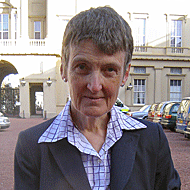 Jinty
Nelson [Dame Janet L. Nelson DBE, FBA], is Emeritus
Professor of Medieval History at Kings College, London. She
studied for her Ph.D. at Newnham College, Cambridge, under the
supervision of Walter Ullmann between 1964 and 1967. After working
briefly for HM Foreign and Commonwealth Office, she was appointed as
Lecturer in Medieval History at Kings College, London in 1970,
where she taught for thirty-eight years, being promoted to be
professor in 1992. Her principal area of research has been the
Carolingian world and political ideas in the early Middle Ages. Her
books include Politics and Ritual in the Earlier Middle Ages
(1986), The Annals of St-Bertin (1991), Charles
the Bald
(1992), The Frankish World c.
750-900 (1995), and
Courts, Elites and Gendered Power in the Early Middle
Ages
(2007).She
was
President of the Ecclesiastical History Society in 1992-3, elected a
Fellow of the British Academy in 1996, was its Vice-President for
Humanities 1999-2001, and was President of the Royal Historical
Society 2000-4. She was appointed DBE for services to History in
2006. She is currently working on a study of the reign of Charlemagne.
Jinty
Nelson [Dame Janet L. Nelson DBE, FBA], is Emeritus
Professor of Medieval History at Kings College, London. She
studied for her Ph.D. at Newnham College, Cambridge, under the
supervision of Walter Ullmann between 1964 and 1967. After working
briefly for HM Foreign and Commonwealth Office, she was appointed as
Lecturer in Medieval History at Kings College, London in 1970,
where she taught for thirty-eight years, being promoted to be
professor in 1992. Her principal area of research has been the
Carolingian world and political ideas in the early Middle Ages. Her
books include Politics and Ritual in the Earlier Middle Ages
(1986), The Annals of St-Bertin (1991), Charles
the Bald
(1992), The Frankish World c.
750-900 (1995), and
Courts, Elites and Gendered Power in the Early Middle
Ages
(2007).She
was
President of the Ecclesiastical History Society in 1992-3, elected a
Fellow of the British Academy in 1996, was its Vice-President for
Humanities 1999-2001, and was President of the Royal Historical
Society 2000-4. She was appointed DBE for services to History in
2006. She is currently working on a study of the reign of Charlemagne.
Bastian Schlüter is Assistant Professor of German Literature Studies at the Freie Universitt, Berlin, where he received his Ph.D. in 2009. A revised version of his thesis, Explodierende Altertümlichkeit. Imaginationen vom Mittelalter zwischen den Weltkriegen [Exploding Antiquity. Concepts of the Middles Ages between the Two World Wars], was published in 2011. His principle areas of research are literature and history from the eighteenth century to the present, and medievalism in German art and politics.
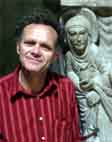 Jean-Claude Schmitt
is Director of Studies at the École des Hautes Études
en Sciences Sociales in Paris, where since 1992 he has been the
leader of the section on the Historical Anthropology of the Medieval
West. He has also conducted research and taught in a number of
foreign countries, notably at the University of Konstanz and the
Humboldt University, Berlin, in Germany; at the Warburg Institute in
London; and at several institutions in the United States, most
recently at the Getty Research Institute in Los Angeles in 2002. His
research has largely concerned popular ideas and beliefs in the
Middle Ages. His books have been translated into many languages:
those which have appeared in English include The
Holy Greyhound: Guinefort, Healer of Children since the Thirteenth
Century (1983);
Ghosts
in the Middle Ages: the Living and the Dead in Medieval Society
(1998);
and The
Conversion of Herman the Jew: Autobiography, History and Fiction in
the Twelfth Century (2010).
His most
recent book, a French translation of the Life of the Emperor Charles
IV (done in collaboration with Pierre Monnet) also appeared in 2010.
Jean-Claude Schmitt
is Director of Studies at the École des Hautes Études
en Sciences Sociales in Paris, where since 1992 he has been the
leader of the section on the Historical Anthropology of the Medieval
West. He has also conducted research and taught in a number of
foreign countries, notably at the University of Konstanz and the
Humboldt University, Berlin, in Germany; at the Warburg Institute in
London; and at several institutions in the United States, most
recently at the Getty Research Institute in Los Angeles in 2002. His
research has largely concerned popular ideas and beliefs in the
Middle Ages. His books have been translated into many languages:
those which have appeared in English include The
Holy Greyhound: Guinefort, Healer of Children since the Thirteenth
Century (1983);
Ghosts
in the Middle Ages: the Living and the Dead in Medieval Society
(1998);
and The
Conversion of Herman the Jew: Autobiography, History and Fiction in
the Twelfth Century (2010).
His most
recent book, a French translation of the Life of the Emperor Charles
IV (done in collaboration with Pierre Monnet) also appeared in 2010.
Jonathan Shepard was formerly a fellow of Peterhouse, Cambridge. He has published extensively on the history, and especially the diplomacy and foreign relations, of Byzantium in the early Middle Ages, and also on the history of early medieval Russia. He wrote, in collaboration with Simon Franklin, The Emergence of Rus 750-1200 (1996); and was the editor of The Cambridge History of the Byzantine Empire (2008).
The Project Organisers
Peter Biller (University of York) see above.
 Graham
A. Loud is
Professor of Medieval
History and Director of the Institute for Medieval Studies at the University of Leeds, where he has taught since 1978,
being promoted to become professor in 2003. His principal field of
research is southern Italy during the Norman and Staufen periods
(eleventh-thirteenth centuries), although he also works on the
history of the Crusades and medieval Germany. Among his books are:
Church and
Society in the Norman
Principality of Capua, 1058-1197 (1985);
The Age of
Robert Guiscard. Southern
Italy and the Norman Conquest (2000);
The Latin
Church in Norman Italy
(2007); and The
Crusade of Frederick
Barbarossa (2010).
His Roger
II and the Making of the Kingdom of Sicily
was published in the Manchester Medieval Translations' series
in March 2012. He is currently working on a study of the murder of
bishops in medieval Germany.
Graham
A. Loud is
Professor of Medieval
History and Director of the Institute for Medieval Studies at the University of Leeds, where he has taught since 1978,
being promoted to become professor in 2003. His principal field of
research is southern Italy during the Norman and Staufen periods
(eleventh-thirteenth centuries), although he also works on the
history of the Crusades and medieval Germany. Among his books are:
Church and
Society in the Norman
Principality of Capua, 1058-1197 (1985);
The Age of
Robert Guiscard. Southern
Italy and the Norman Conquest (2000);
The Latin
Church in Norman Italy
(2007); and The
Crusade of Frederick
Barbarossa (2010).
His Roger
II and the Making of the Kingdom of Sicily
was published in the Manchester Medieval Translations' series
in March 2012. He is currently working on a study of the murder of
bishops in medieval Germany.
 Martial
Staub has been
Professor of Medieval
History at the University of Sheffield since 2004. He studied at the
University of Paris I Sorbonne, University of Paris X Nanterre, and
at the École des Hautes Études en Sciences Sociales,
and was then (from 1993) a research fellow at the Max Planck
Institute of History at the University of Göttingen. His
interests lie especially in the religious and urban history of the
late Middle Ages; in which field his most important publication is
Les
Paroisses et la Cité:
Nuremberg du XIIIe Siècle à la Reforme
(2003). He is also involved in a collaborative project with other
colleagues at Sheffield on the history of exile.
Martial
Staub has been
Professor of Medieval
History at the University of Sheffield since 2004. He studied at the
University of Paris I Sorbonne, University of Paris X Nanterre, and
at the École des Hautes Études en Sciences Sociales,
and was then (from 1993) a research fellow at the Max Planck
Institute of History at the University of Göttingen. His
interests lie especially in the religious and urban history of the
late Middle Ages; in which field his most important publication is
Les
Paroisses et la Cité:
Nuremberg du XIIIe Siècle à la Reforme
(2003). He is also involved in a collaborative project with other
colleagues at Sheffield on the history of exile.
 Ian
Wood is
Professor of Early Medieval
History at the University of Leeds, where he has taught since 1976.
His research has been concentrated upon the political and religious
history of the late-Roman and post-Roman west. He is the author of
The
Merovingian Kingdoms (450-751)
(1994);
and The
Missionary Life. Saints and the Evangelisation of Europe 400-1050
(2001);
and he was the co-ordinator of
the European Science Foundation project on The Transformation of
the Roman World. He is currently completing a study on
historiographical interpretation of the barbarian invasions of the
Roman Empire from the seventeenth century to the present, which is
expected to be published by Oxford University Press in 2013.
Ian
Wood is
Professor of Early Medieval
History at the University of Leeds, where he has taught since 1976.
His research has been concentrated upon the political and religious
history of the late-Roman and post-Roman west. He is the author of
The
Merovingian Kingdoms (450-751)
(1994);
and The
Missionary Life. Saints and the Evangelisation of Europe 400-1050
(2001);
and he was the co-ordinator of
the European Science Foundation project on The Transformation of
the Roman World. He is currently completing a study on
historiographical interpretation of the barbarian invasions of the
Roman Empire from the seventeenth century to the present, which is
expected to be published by Oxford University Press in 2013.